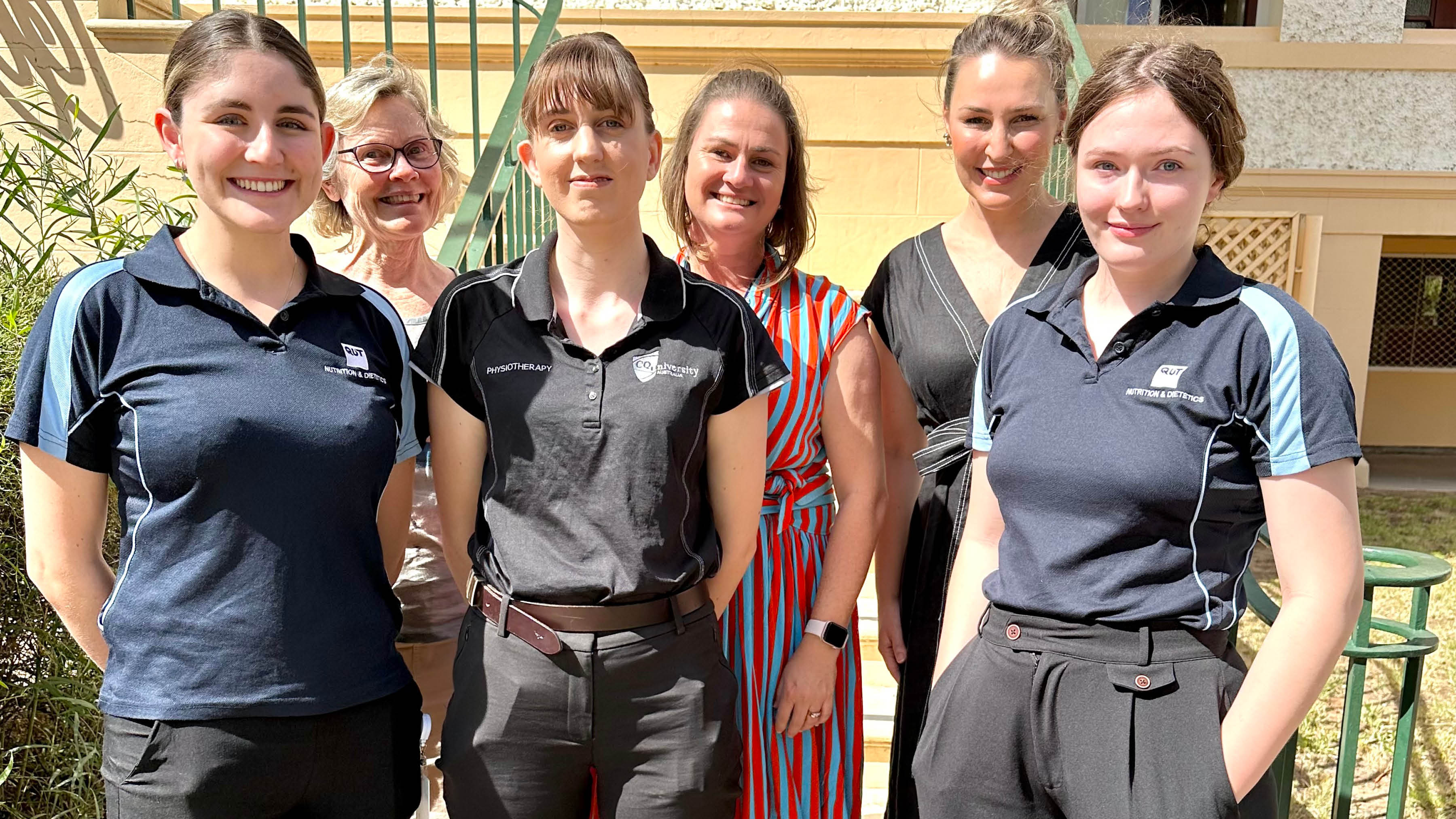
The South West Hospital and Health Service (HHS) has introduced an innovative program to expose final year Allied Health students to life and work in rural areas.
South West HHS Executive Director of Allied Health, Helen Wassman, said the Rural Immersion Placement Program – Allied Health (RIPPAH) was a first for Queensland that included community
experiences for students rather than just a clinical practice placement.
“We hope this early positive exposure to living and working in rural areas will help them decide to pursue a career in the country once they have completed their studies,’’ she said.
Ms Wassman said RIPPAH had been developed in collaboration with Southern Queensland Rural Health (SQRH) and the Office of the Chief Allied Health Officer (OCAHO) over the past two years, with
the first participants starting in the program from January this year.
“SRQH kindly provide free accommodation to every RIPPAH student along with a student bursary,’’ she said.
“OCAHO sponsors a project officer position to facilitate the planning, implementation, and evaluation of RIPPAH to ensure it is sustainable and meets the needs of our community and health service partners.’’
Ms Wassman said the RIPPAH program was available to final year Allied Health students who specifically expressed a desire and a passion for pursuing a rural health career.
“As part of the program, students are immersed in the community where they are offered opportunities including social activities, rural farm stays, part-time paid employment, and sporting team membership,’’ she said.
“This is designed to expose them not just to the variety of work available should they take up a rural health career, but also the social and personal benefits of living in a small community.’’
Ms Wassman said the first three students to join the program included a physiotherapy student from Central Queensland University and two dietitian students from Queensland University of Technology.
“A further seven Allied health students will join us during the remainder of the year from the University of Queensland, Griffith University and Queensland University of Technology,’’ she said.
“All the students will undertake placements of between 10 and 15 weeks at our three main hub hospitals at Roma, Charleville, and St George.
“From those hubs, they may also have the opportunity to experience short outreach visits to our other facilities throughout the region.
“Our first three students are based at Roma Hospital, and subsequent students will be placed at Charleville and St George.
“For instance, we will have two nutrition and dietetics students at Charleville Hospital for 10 weeks in April, May and June, followed by a physiotherapy student completing five weeks at Charleville Hospital and five weeks at St George Hospital, integrated with the SQRH student clinic in July and August.’’
Ms Wassman said as final year students, all those participating in the RIPPAH program would be on the cusp of deciding where they wanted to start their careers once they had graduated.
“We hope their RIPPAH experience will help them decide to work with us or in other rural and regional areas of Queensland,’’ she said.
One of the first three participants in the program is physiotherapy final year student Laura Rutherford from Central Queensland University, who hails from Marmor, south of Rockhampton, and has just started a 10-week placement at Roma Hospital.
“I heard about the RIPPAH program, and I thought immediately that’s exactly what I want to do with my career,’’ she said.
“As well as offering an extended rural placement, the program gives you the opportunity to get involved with the local community as well as work in a rural hospital.
“I’m passionate about working in a rural area and this seemed like such a great opportunity to get some real exposure to what it would be like to do once I finish my degree.
“I also liked the idea of doing the placement in Roma because I have a lot of family around there and I know the region quite well.
“It just seemed to all fall into place perfectly.’’
For more information on Southern Queensland Rural Health, visit www.sqrh.com.au